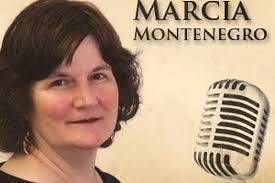
There’s a reason he’s called the rich, young fool. Though he was wise enough to ask the right person, Jesus, his question, “what must I do to inherit eternal life” he was fool enough to claim, after Jesus reminded him of the 10 Commandments, that he had kept them from his youth. There’s a smug pride in him, the same smug pride in us when we think we’d never say such a thing. Praying, “I thank you Lord that I am not like other men. I acknowledge the reality of sin and my need for forgiveness” is not that far from the Pharisee’s prayer.
We are, unlike that rich young fool, willing to admit that we are sinners. Are we, however, willing to admit that we have sinned? That we are sinning? That we will sin? Are we not so prideful that we see the warning of Jesus to flee temptation as something quaint and old-fashioned? Do we not presume upon the grace of God and see sin as something small? Do we not over-estimate our own strength by playing with fire and thinking we won’t get burned?
Sin is destructive. A little harmless flirting, a quick peek at those images on the internet, talking about our suspicions about our pastor, what’s the worst that could happen? Death. Broken homes and the broken children that come with them, church splits. Nobody sneaks up on those sins planning for everything to blow up. Nobody intends to fall into grievous sin. We just want to get look at it, to peer over the edge.
Reformation starts now, as it did then by putting aside our foolish plans for covering our sins and returning to the one plan, repenting and resting in the finished work of Christ alone. That means owning the cost of our redemption. This sin, the one drawing me in right now, doesn’t merely increase the number of coins Tetzel will demand of me. This sin is one more ounce of the poison cup the Prince of Peace had to drink for me. A casual “Put it on Jesus’ tab” is a good sign that we are not truly His friend.
How seriously did Jesus take the dangers of sin? In His Sermon on the Mount He had this to say,
If your right eye causes you to sin, pluck it out and cast it from you; for it is more profitable for you that one of your members perish, than for your whole body to be cast into hell. And if your right hand causes you to sin, cut it off and cast It from you; for it is more profitable for you that one of your members perish, than for your whole body to be cast into hell (Matthew 5:29, 30).
Sin comes to us as a furry kitten, leaves us behind as a roaring lion. Boasting that we are beyond temptation is nothing but an invitation. Humbly fleeing, on the other hand, closes the door. No one of us has ever brought good out of sin. Better that we get out while the getting is good.









